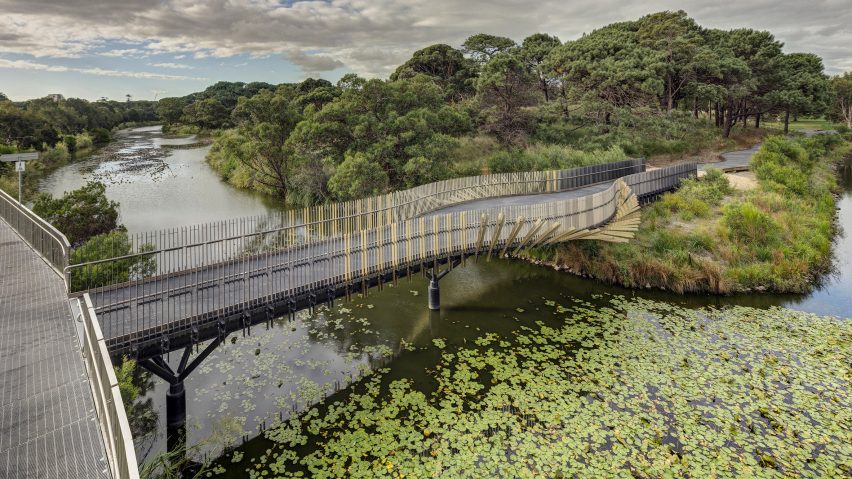
Sam Crawford Architects models Bara Bridge on curving shape of eels
Fins of anodised aluminium fan outwards towards the water at this bridge in Sydney's Centennial Park, designed by local practice Sam Crawford Architects to evoke the shimmering appearance of eels.
Called Bara Bridge, the structure is informed by the curved shape and migration patterns of the "bara", or long-finned eel, which play an important part in the local Dharawal people's traditions.
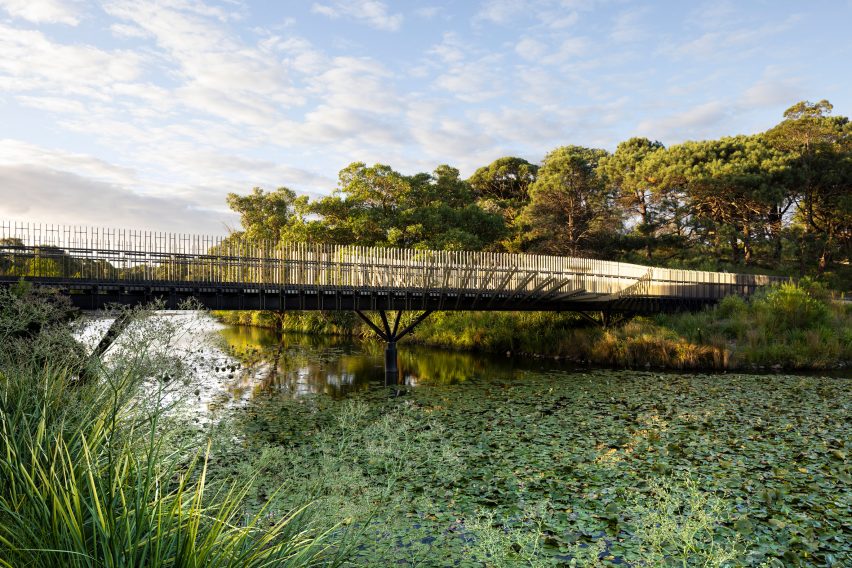
Sam Crawford Architects designed the 40-metre-long structure to cross over a pond that is inhabited by these snake-like fish.
It replaces a decaying and inaccessible bridge, restoring the connection between the park and the surrounding suburb's pedestrian and cycle routes.
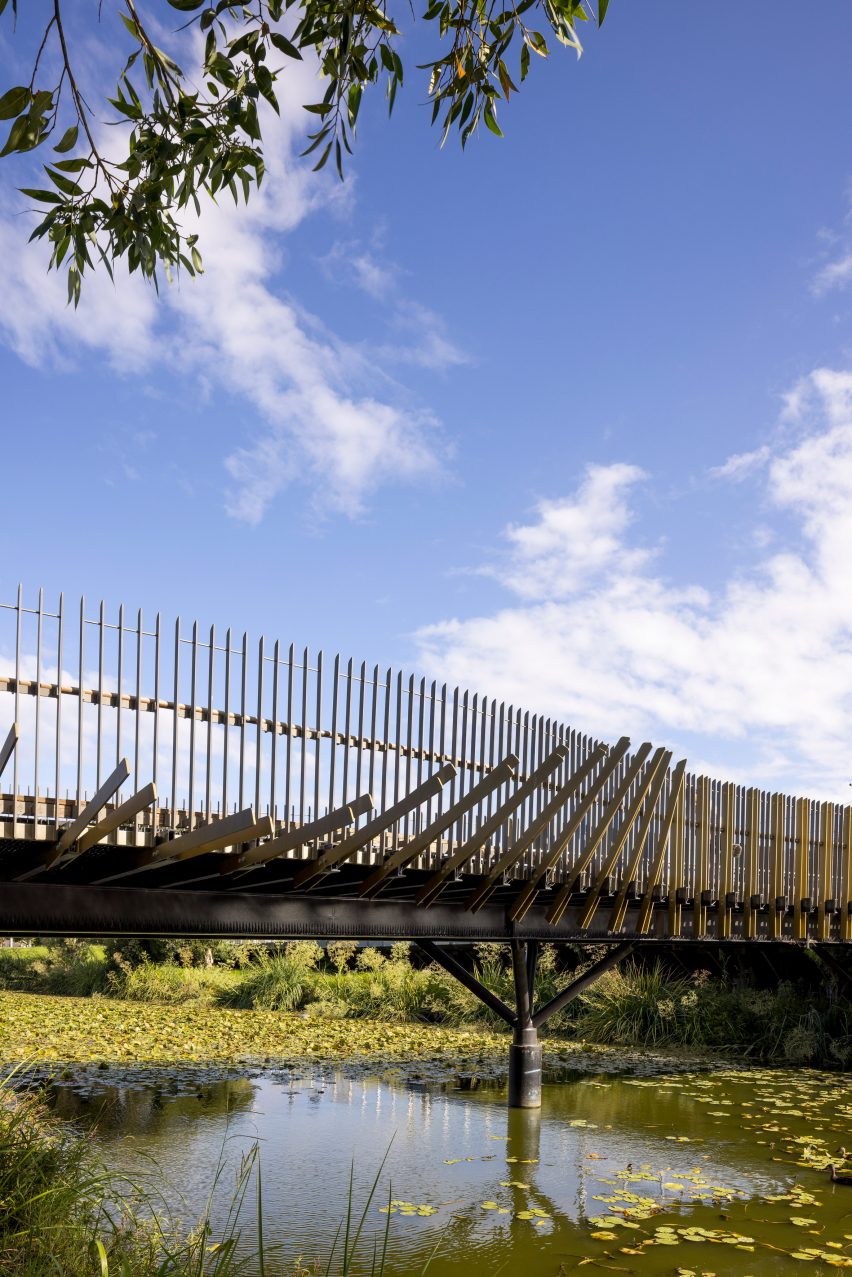
"The dynamic expression of the bridge draws attention to the incredible and ancient migration of the eel to reproduce, an important aspect of the local Dharawal people's traditions," explained the studio.
"Other gateways to the park all reflect European sensibilities, but our design commemorates centuries of indigenous culture, and also references the materiality and colours of the park's existing infrastructure," it continued.
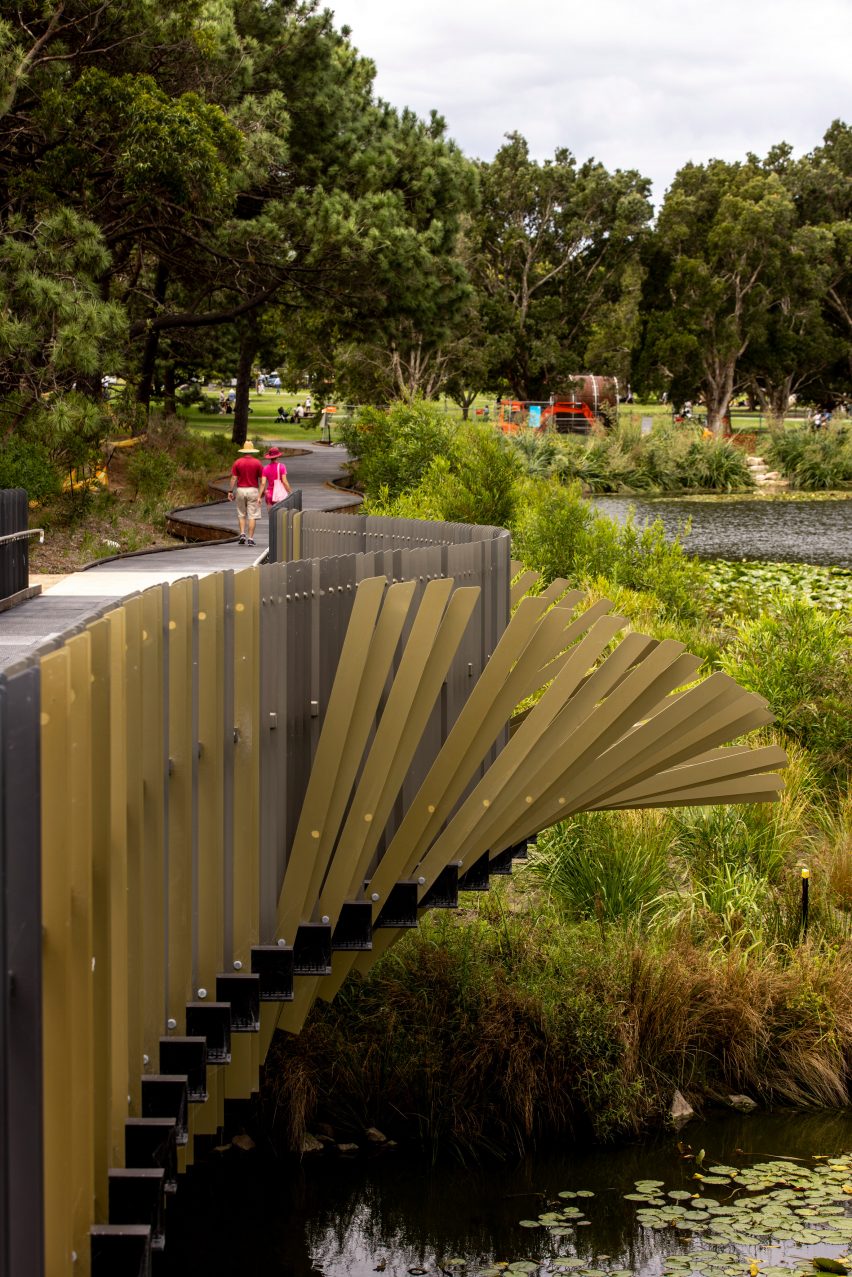
Curving outwards at the centre to create a viewing platform, the sides of Bara Bridge are clad with anodised aluminium fins in shades of gold and silver that are designed to "shimmer" as visitors walk across and around the structure.
"The sinuous, curved shape of the bridge recalls the movement of the eels which swim slowly by means of lateral movements of the body," said Sam Crawford Architects. "As they move, they shimmer."
"The bridge widens at the centre to form a viewing platform, a place of repose, allowing pedestrians to pause and appreciate the aquatic and bird life and flora, such as endangered banksia scrubs and native grasses," it continued.
To minimise disturbance to the pond, Bara Bridge stands on just three piles driven into its bed, each connected to a cruciform steel structure that supports a deck of steel beams.
Its surface is finished with a non-slip, fibreglass-reinforced plastic mesh, while its balustrades are made from local spotted gum timber.
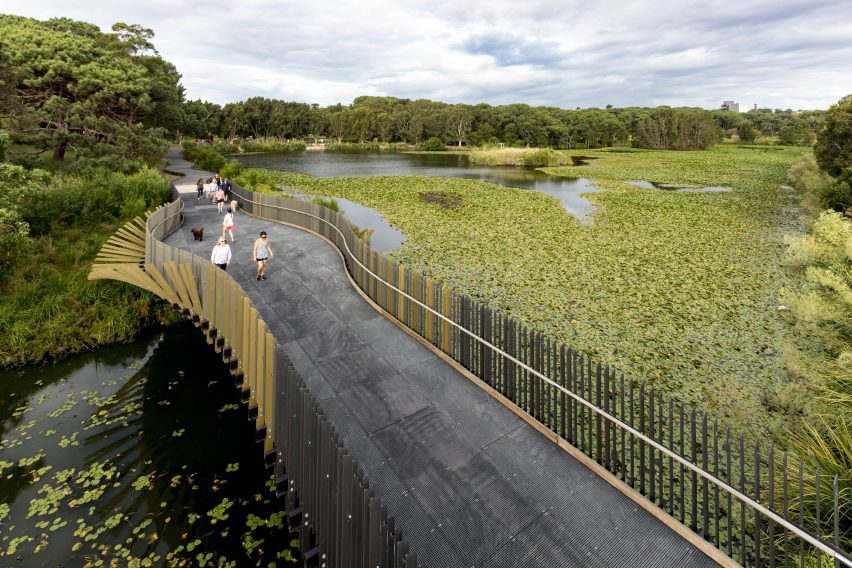
The impact on the site was also minimised by prefabricating all of the bridge's elements off-site before transporting them to the park for assembly. This helped to reduce material waste too.
"The contemporary connection to the much-loved park also has environmental values at the heart of the design," added Sam Crawford Architects.
"It protects banks from erosion, preserves habitat for endangered species, and provides visitors with an opportunity to directly engage with the pond ecosystem."
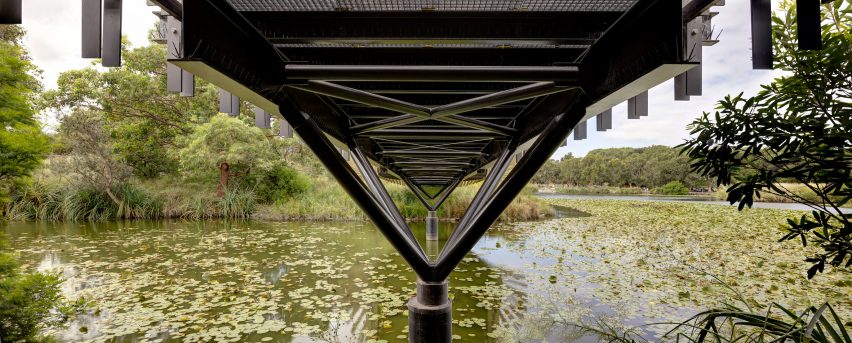
Other unusual bridges recently featured on Dezeen include the swooping Ribbon of Light by Michael Maltzan Architecture in LA and the Smart Circular Bridge in Almere that is built from flax.
Elsewhere in Australia, Kerstin Thompson Architects recently completed a series of buildings for the Bundanon Art Museum, including a large steel flood bridge atop which visitors can stay.
The photography is by Brett Boardman.